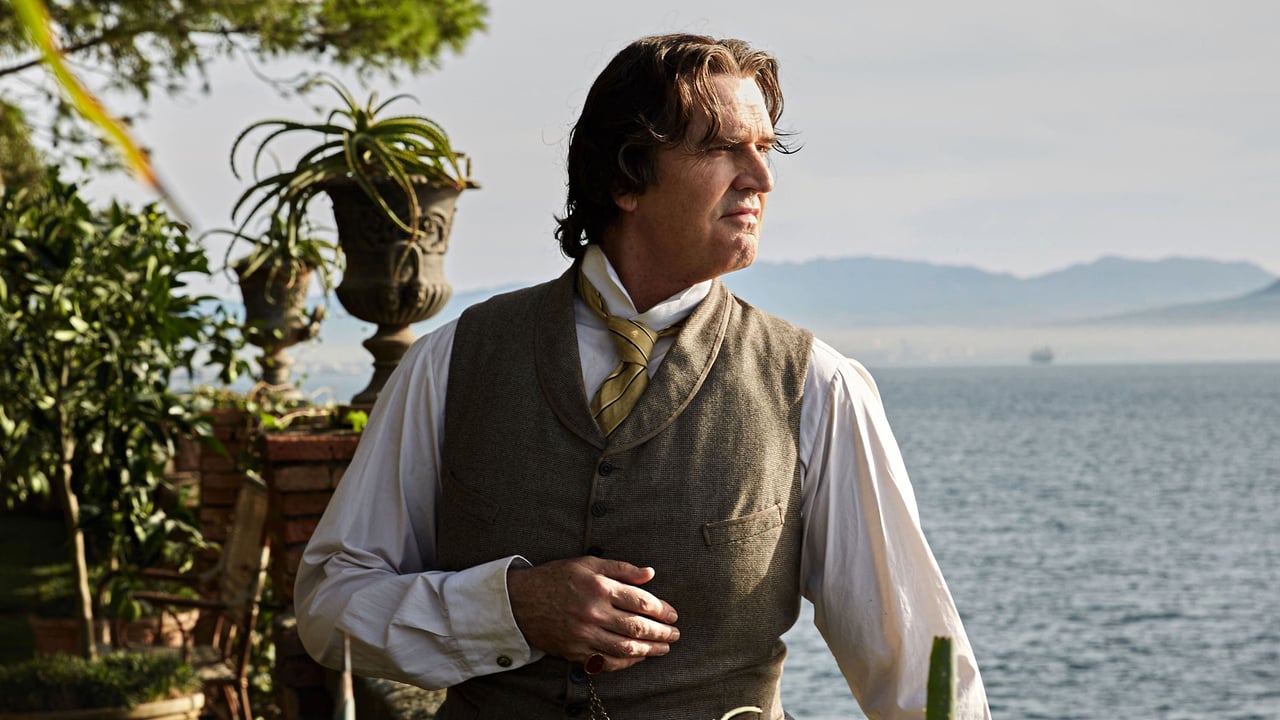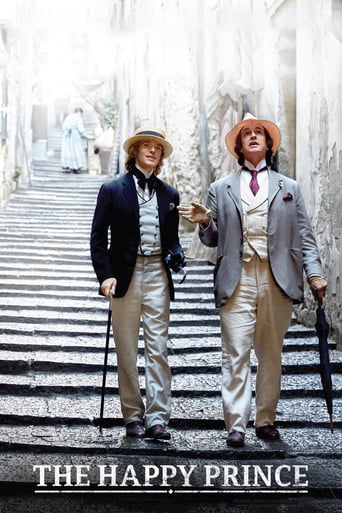Diagonaldi
Very well executed
ChanBot
i must have seen a different film!!
Tedfoldol
everything you have heard about this movie is true.
Stellead
Don't listen to the Hype. It's awful
andyge
This is a considerable personal achievement for Rupert Everett who scripted, directed and starred in this film of Oscar Wild's little known final years. The story is always interesting and the direction has moments of genius however it is Everett's wonderful performance that lifts this film above the ordinary. This is a part that he seems to have been born to play and he captures all the pain and regret leading up to Wild's death.Excellent support from Firth,Morgan and especially Edwin Thomas. The best scenes and essence of the story are captured when Everett is singing 'The boy I love is up in the gallery' in a Paris music hall and when he tells the story of the 'Happy Prince'... you can physically feel the pain of a wasted and lost talent.
ponty-84699
Although it focuses on the less well-known final years of Wilde's life, the script follows a traditional arc and has little new to say about the writer or his relationships.Ross and Douglas are presented as daggers drawn in the service of a script which identifies them as Wilde's 'good' and 'bad' angels. The reality was much messier, and records show that during Wilde's lifetime they remained friends, at least on the surface. It was only a good while after his death that they fell out, with appalling consequences for both of them. In this context, the film's depiction of the altercation between the two men at Wilde's funeral is particularly ridiculous. If the eye witness account of the poet Paul Fort is to be believed, there was a hysterical scene when Douglas tried to throw himself into the grave, but it didn't lead to fisticuffs with Ross.This aside, there is much to enjoy in the film, not least Rupert Everett's compelling central performance, its impressionistic structure and the stunning cinematography and costumes. There are also interesting and nuanced supporting performances from Emily Watson and Colin Morgan, even within the strait jacket of a script that has little to add to received wisdom about their characters.
davidgee
There have been three excellent previous screen versions of Wilde's fall from grace, but THE HAPPY PRINCE outshines them all.Pre- and post-Fall are interwoven. Oscar tells 'The Happy Prince', his dark (Grimm) fairy story, to his children in flashbacks from Paris, where he also tells it to a couple of street kids who have become the children of his exile although the older brother is also his rent-boy. Bloated and dishevelled, the old Oscar still has the appetites which sent him to prison. And he still loves Lord Alfred Douglas, who joins Oscar in a villa in Naples (with more rent-boys) in Naples for a few bickering months. Robbie Ross (Edwin Turner) and Reggie Turner (Colin Firth) are the last London friends who offer loyalty and handouts.Everett's Wilde is as poignant as Stephen Fry's but even more pitiable as poverty and ill-health overcome him. Colin Morgan gives 'Bosie' his prettiest incarnation since John Fraser in 1960. Emily Watson shines in brief scenes as Oscar's wife Constance, also forced into exile by his disgrace. Tom Wilkinson contributes a vivid cameo as the priest brought to Oscar's hotel deathbed. The famous lines about the wallpaper and 'dying beyond my means' are not forgotten; and Everett has scripted a few one-liners Oscar would happily steal the credit for.The final scenes almost certainly take liberties with the facts, but they add an operatic grandeur to the 'Last Act'. Rupert Everett's long struggle to realise this project is a splendid homage to the tragedy of the 'comeback' that was Wilde's greatest drama, his greatest tragedy. The movie deserves to be garlanded with awards: an Oscar for Oscar!
johnandbarrington
All credit to Rupert Everett for bringing to life his story of Wilde's final years following his exile from England after his release from prison. The film is never less than interesting and often fascinates but it suffers because Everett cannot fully live up to his decision to play the lead, write the script and helm the picture. He's best when acting but even this falters in some scenes with Bosie that are distinctly undercooked. The script in parts needed a tighter edit and there's only so much reflected light in the camera that you can put down to cinematic meaning making and artistic licence. Sorry Rupert - just too little butter over too much bread I'm afraid. However, the film is never less than distracting and Everett successfully makes Wilde the man that he was: At once irritating, outrageous but always to be loved. His performance of Wilde incited many emotions in me but I always returned to compassion.Worth a look!

